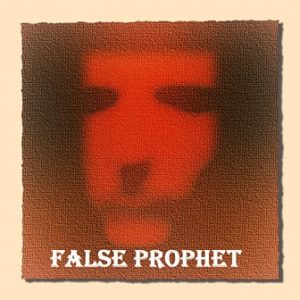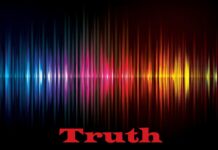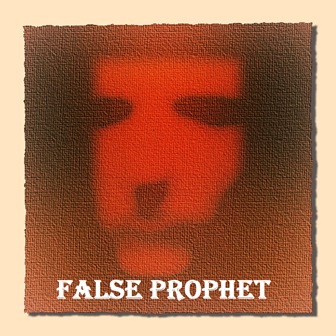 Balaam gave the only accurate Messianic prophecy in the Pentateuch and he was a false prophet! There’s more to the issue of who is or isn’t a “false prophet” than an accurate/inaccurate prediction of a future event.
Balaam gave the only accurate Messianic prophecy in the Pentateuch and he was a false prophet! There’s more to the issue of who is or isn’t a “false prophet” than an accurate/inaccurate prediction of a future event.
This topic cannot be exhausted in a brief blog, especially when considering the critical importance of understanding the continuity and discontinuity (similarities and differences) between the old and new covenants regarding prophetic ministry. I cannot open that discussion here, but have covered it elsewhere.[1] In the few paragraphs that follow, I cover some basics and some of the more common misconceptions concerning “false prophets.”
How to Recognize a False Prophet
1. Mistaken or False?
Merely being mistaken on a point, or having a different opinion regarding the interpretation and application of scripture, does not make someone false or a heretic. Only God is 100% flawlessly objective and accurate, 100% of the time. The rest of us are in a life-long journey of approximating truth and conformity to His image. At any point in time, I will likely see clearly and accurately in some areas, and unclearly and inaccurately in others. This makes me human, not false. Professor David C. Jones developed a simple explanation of the migration from absolute truth to falsehood:
Truth–mistaken opinion–isolated error–systemic error–heterodoxy–heresy/falsehood.
We should have breadth of tolerance with one another before we start labeling someone as false. Falsehood is a state of being, not just a state of mind and thought.
2. The Love of Money
From the earliest days of church history, one of the differentiating qualities that the church used to distinguish its own from false prophets was the issue of the love of money: a “payment for services” mentality that discharges a supernatural grace for a negotiated fee. I am not referring to the exchange of economy based on love, mutuality, grace and gift exchange.[2] I am talking about quid pro quo[3]mercantilism. I am aware of situations where people have been taught to line up in $25.00, $50.00, and $100.00 lines to receive “a prophetic word:” the more you pay, the higher quality “word” one receives. This is shameless iniquity and qualifies as “falsehood.”
3. Ecstasy
In this context, ecstatic means the abrogation of the normal functions of ones faculties: mind, body, soul, or spirit. The spirit of the prophets is subject to the prophets.[4] From the earliest times of church history, being frenzied or out of control of one’s faculties was a litmus test of falseness.[5] This does not mean we should never be emotionally overwhelmed, or even experience transcendent things. God forbid. There has always been a long tradition in the church of transcendent Christian mysticism. God is more than tidily packaged rationality, and so are human beings.
However, all of God’s prophets, even those considered perhaps as the most transcendent (Daniel, Ezekiel, John, etc.), never lost control of their rational faculties. Even in their transcendent state, they were cogent: I heard, I saw, I smelled, He said to me, write this down, awareness of one’s surroundings, (I was in the third heavens), etc.
All pagan cultures through all time[6] had prophetic traditions that were characterized by frenzied, ecstatic prophets and prophetic visions, trances, etc. The Jews, and later the Christians, denounced and separated themselves from such, as false. Eusebius, Bishop of Caesarea, said the following in the disputes the church was having with Montanism (A fourth century prophetic revival movement):
“And he [Montanus] became beside himself, and being suddenly in a sort of frenzy and ecstasy he raved, and began to babble and utter strange things, prophesying in a manner contrary to the constant custom of the Church handed down by tradition from the beginning.”
Being out of control, out of one’s mind, incoherent, babbling, having bodily contortions, etc., do not validate anyone or anything as authentically from God. It is likely just the flesh, and could be demonic.
4. Inaccurate Predictions
For the majority of folks I have known over the years, the totality of their understanding and discernment on this topic is confined to an application of Deuteronomy 18:22:
When a prophet speaketh in the name of the Lord, if the thing follows not, nor come to pass, that is the thing which the Lord hath not spoken, but the prophet hath spoken it presumptuously: thou shalt not be afraid of him.
Please Note: the passage says nothing about truth and falsehood. It speaks of presumption and not worrying about what the person says. Forgetting for now the implications of old and new covenant distinctions, there is also more than just Deuteronomy 18 to consider. Deuteronomy 13:1-5 says:
If there arise among you a prophet, or a dreamer of dreams, and giveth thee a sign or a wonder, And the sign or the wonder come to pass, whereof he spake unto thee, saying, Let us go after other gods, which thou hast not known, and let us serve them; Thou shalt not hearken unto the words of that prophet, or that dreamer of dreams: for the Lord your God proveth you, to know whether ye love the Lord your God with all your heart and with all your soul. And that prophet, or that dreamer of dreams, shall be put to death; because he hath spoken to turn you away from theLord your God . . .
If the effect of the accurate prophecy, sign, or wonder causes the hearer to move away from accurate worship of, and relationship with, Yahweh, that prophet was to be ignored, and executed for anACCURATE prophecy!
5. Using/Claiming the Name of the Lord
If someone claims to speak in the name of the Lord, and slaps the Lord’s name on something (Thus says the Lord, the Lord says, God spoke to me, etc.), then that person must be open to the 100% standard, and he or she must take ownership for being at 90%.
I know very few folks, perhaps none, who are really open to this level of critique and evaluation of their “spirituality.” I strongly urge folks not to use that kind of terminology. I am not denying that those who are His hear his voice.[7] I am urging against publicly proclaiming such and opening up the Lord’s reputation to dishonor, contempt, or mocking when what we “think” God is speaking to us turns out to be wrong. Not every impression in our noggins is God talking to us.
I have friends who differ with me on this. They feel that you must always slap the Lord’s name on things if you claim to be a prophet or to be hearing Him speak. That’s fine, but if you insist upon that kind of language, you must accept the public evaluation of others that goes with the privilege. NT prophetic ministry is subject to the scrutiny of the community. My issue is with people who want the freedom and privilege to use the language, but who are unapproachable by the community.
You can’t act all hurt and offended when others challenge you and disagree with you. You cannot blame the body of Christ: “Well, my prophecy was accurate and would have come true, but the church didn’t obey enough, pray enough, fast enough, etc.” This is shamefully manipulative and a too common response. You must publicly repent when you are wrong if you want to claim the Lord’s name in your utterance, or declaration.[8]
I say, let’s get rid of the Pentecostal and Charismatic baggage associated with prophetic ministry that is more likely rooted in insecurity and a need to be validated than any divine protocol. The minute you say: “Thus says the Lord,” or “God told me,” you have short-circuited peer relationship within the community, because no one can engage you or challenge you, without walking all over your sense of spirituality. After all, no one can compete with God, and you just said you got it right from heaven. It makes for dysfunctional relationships one with another.
A simple disclaimer such as: “I believe the Spirit of the Lord said to me,” or “I feel,” or “I thought I heard the Spirit say, etc.” would not put the Lord’s name and reputation on trial. It would also leave interpersonal room to talk to one another. Besides, if it is really God speaking, adding “thus says the Lord,” doesn’t add any gravitas. The content of what you say carries the spiritual substance, not the decorating adjectives and adverbs about what you say.
6. False Signs and Wonders
There are such things as lying signs and wonders. Occultists can, and do, give accurate predictions. Accurate prophecies can have a demonic source. Mere accuracy is not enough of a valuation measure.
7. The Message
The core of the apostolic message is the declaration of the historical reality of the person of Jesus Christ, His literal birth, literal death, and literal resurrection. When the apostles were dealing with issues of “false teachers/prophets,” we must remember their context was not primarily disputations regarding a new testament that did not exist at the time! It was how to understand and apply the “Christ Event.”
They were primarily dealing with alternate views of the reality and historicity of the Christ and the significance of Christ’s ministry and the dawning of the new age. The core elements of the faith, as summarized in the great creeds, to which any “Christian” from any tradition would subscribe are “The Message.” Deviation (see #1 above) from those issues would constitute falseness, not debating different ways to interpret and apply the scriptures.
Summary
There is much more that can, should, and needs to be said on this topic, which space and length prohibit. Dr. Bill Hamon has an excellent series called the Ten M’s for Ministry.[9] These are qualities for evaluating truth and falsehood in any ministry or individual, not just prophets, in an integrated and whole way, apart from simplistic proof texts. They are:
- Man (person), ministry (miracle), money, motive, message, maturity, marriage, methods, manners, and morality.
Space prohibits me from examining all of these. I suggest they are a good list to start with. At the very least when evaluating whether or not something or someone is false, the sign (miracle, prophecy, etc.) is inadequate of itself. Evaluation of the sign and its effects, the person in the totality of his or her life, and the core elements of that person’s message, are like the three legs on a stool: the minimum necessary for it to stand.
____________________________
Would you like to partner with us in distributing our materials and perhaps generate some income for yourself? Please go to http://www.stevecrosby.com for details of our Affiliate program. This ministry is sustained by the freewill offerings of those believe in the message of a radical grace in a new covenant understanding. If this article has been a blessing to you, would you prayerfully consider making a tax-deductible contribution through our Paypal button to help? Thank you and God bless you.
[1] Please refer to other articles on this blog, the Prophetic Manifesto, and contact us regarding the six-hour training seminar: “Understanding the Prophetic Mind and Consciousness.”
[2] Please refer to Money and the Church: A Better Way to Live and Give, available atwww.stevecrosby.com.
[3] Latin: this for that.
[4] 1 Cor. 14:32 – whether this verse means the individual is control of his or her own spirit, or it is referring to the consensus evaluation of the community, both are good, and it doesn’t matter to me.
[5] I highly recommend the chapter on this topic in Abraham Heschel’s: The Prophets, for a more thorough treatment.
[6] The Babylonians and Assyrians are an exception that I cannot digress into here.
[7] John 10:27 – that does not mean just the reading of scriptures. God still speaks. He did not become a deaf mute because of the canonization of scripture. You are not going to find a verse on who to marry, where to live, what job to take, etc. God still speaks to his own about such things.
[8] I have been doing this for forty years and personally know of only one instance when a prophetic vessel publicly repented for being wrong in what he predicted. That is not good statistics. My hopes are not too high that it will change any time soon.
[9] http://www.amazon.com/The-10-Ms-Maintaining-Maturing/dp/B000FBQ9R2
CHECK OUT THIS AWESOME VIDEO !!! http://youtu.be/m7l9vdsePnU









































